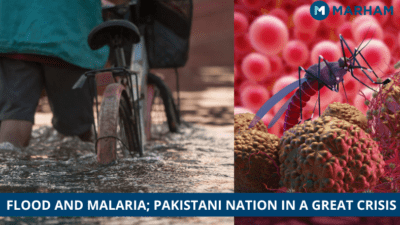Authorities warned that things could get out of hand if vital aid was not provided promptly on Wednesday, noting that malaria cases are rampant in Pakistan’s flood-devastated provinces and that 324 people have died from diseases.
The sluggish floodwaters, which have spread across hundreds of kilometres and may take two to six months to subside, have been blamed for numerous cases of diarrhoea, malaria, typhoid, and dengue fever.
The family is subjected to swarms of mosquitoes in addition to other risks like snake and dog bites.
It appears that they are not receiving it despite the efforts of the government and local, national, and international relief organizations.
Families that have been forced to relocate claim that they are being forced to drink and cook with unsafe water as a result of Pakistan’s inadequate healthcare system and lack of help.
A flood sufferer in southern Pakistan named Ghulam Rasool told the local Geo News TV, “What can we do when we know it will make us sick? In order to survive, we must consume it.”
Mercy Corps’ country director for Pakistan, Dr. Farah Naureen, visited several underwater regions and noted that “the relief is slow to arrive.”
She stressed the need of safe drinking water in a statement she released late on Monday. “We need to act in a coordinated manner to respond to their immediate needs,” she said.
She claimed that health and nutrition are the most important needs of the displaced population.
The crisis management organization has been given permission to spend 10 billion rupees ($42 million) on logistics and flood relief supplies, according to Pakistan’s finance minister.
Click here to book an appointment with a malaria doctor if you are facing this deadly disease.

